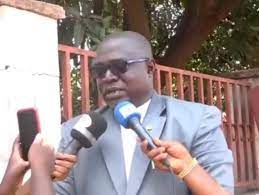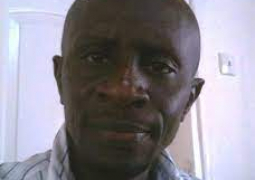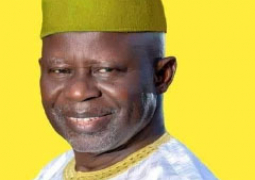
However, the witness responded that a battalion could be moved by a major or a lieutenant colonel.
The other accused persons in the case are Sergeant Gibril Darboe, Corporal Ebrima Sannoh, Corporal Omar Njie of the Gambia Armed Forces and Police Sub-Inspector Fabakary Jawara. The men, indicted early January this year, are alleged to have committed treason, concealment of treason and incitement to mutiny, among other charges.
Continuing with his lengthy cross-examination of state witness Mamad Jobe, Counsel L.S. Camara asked: “On the 21st of February when you gave your evidence in chief before this court, you said: ‘From there he (Sanna Fadera) pulled out an operational plan’. Did you write in exhibit D4 operational plan?”
The witness stated that he did. Reading from his statement (exhibit D4), the witness cited “operational order”.
The army captain further explained that an operational order in the military is the same as operational plan. “An operational plan outlines a detailed plan of an operation. An operational order will also contain a detailed operation of a plan. However, in an operational order, there are steps that have to be in sequence,” the witness expatiated.
Quizzed as to who are mandated to draw operational orders in the military, he said it depends on the individual tasked to draw.
“Is it top military officers in charge of sections, platoons?” counsel asked.
The witness responded that it might be correct to say so and it might also be incorrect in the sense that if it was from the higher authority, the subordinates might also extract from that one so as to brief their subordinates.
However, Captain Jobe affirmed that it is usually the commander who issues operational orders.
“You told the court: ‘As I was looking at the operational plan, I was trembling.’ Is that contained in exhibit D4?” Counsel asked.
“It should be there. If it is not there, then it must be an oversight as I might not have recalled it at the time,” the witness said.
Counsel put to the witness that it was not there, and the witness said it could be.
“Actually,” the witness went on, “when I was writing that statement, I tried to remember as much as I could, though I might not have remembered all. After testifying here, I also came to know that there were things I left out. It was not deliberate. I just could not recall it at the time.”
Counsel asked: “So you said you were shown an operational plan and when you were reading it, you were trembling.” And the witness re-affirmed that he was shown a plan but he did not read the whole document.
“When I was reading that document Sanna Fadera gave me,” he elaborated, “I was trembling. I just made a glance; I was not afraid but I was not comfortable.”
The witness furthered that he did not see anything written on it. He also stated that he did not see operational plan written on it, but it was Sanna who told him it was an operational plan.
Reacting to a question by the defence, the witness stated further that he could not remember seeing the name of any person, any signature or date on the plan as he just had a glance of the document.
“Now, who can move a battalion in the military?” the counsel asked.
The witness, Captain Jobe said that a battalion could be moved by a major or a lieutenant colonel. Going further, he stated that a section could be commanded by a 2nd lieutenant and sometimes a captain, depending on the mission. He furthered that a section is commanded by a section commander or a sergeant, also depending on the type of mission.
“Is it correct that the 1st accused cannot move a battalion?” Counsel Camara asked, and the witness said that “it depends on the circumstances”.
Counsel Camara put to the witness that those circumstances “are only chaotic circumstances”. He asked again whether the 1st accused could move a battalion under normal circumstances. And the witness answered in the negative.
The witness, in response to other questions, also affirmed that the last meeting Sanna Fadera told him about was on a weekend and was not sure whether it eventually took place.
The Infantry Military Captain Jobe also said he did not know how many times he was tasked to record the 1st accused. However, Counsel Camara pointed out 4 times or occasions, in his exhibit D4 (statement), when the witness was tasked to record the 1st accused.
Concluding his marathon cross-examination, the defence counsel asked: “Were you shown any record of your conversation between you and the 1st accused?” The witness answered in the negative.
At this juncture, the matter was adjourned till 2 March at 1pm, when the prosecution will usher in their next witness.





